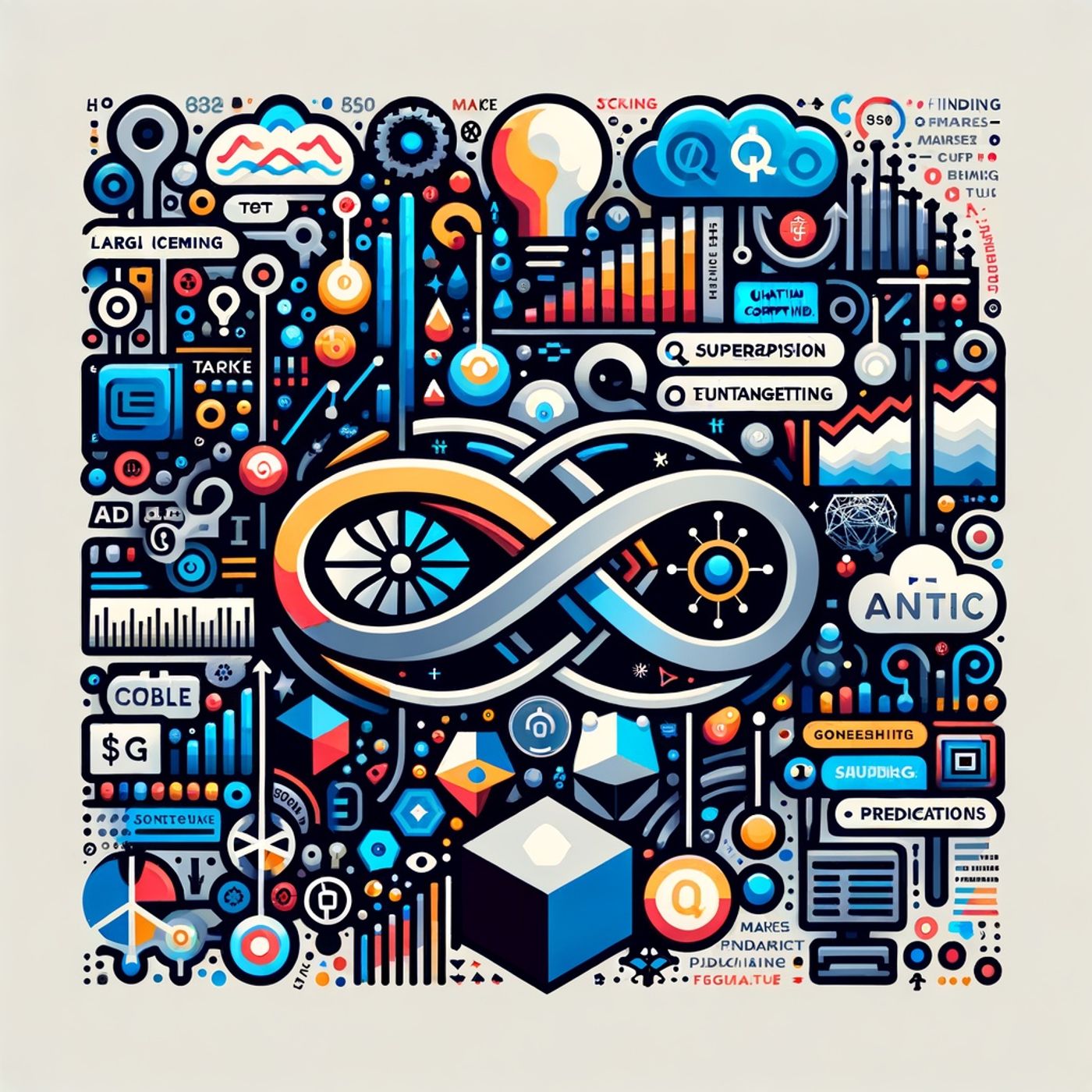Quantum Market Watch

Quantum Market Watch
Podcast Description
This is your Quantum Market Watch podcast.Quantum Market Watch offers daily, cutting-edge updates on the quantum computing market. Stay informed with the latest stock movements, funding rounds, and startup news, alongside in-depth market analysis from industry giants like IBM, Google, and Microsoft. Benefit from expert predictions and insights into emerging market trends, ensuring you remain ahead in the rapidly evolving world of quantum technology.For more info go to https://www.quietplease.aiCheck out these deals https://amzn.to/48MZPjs
Podcast Insights
Content Themes
Explores key themes in quantum computing such as market trends, technological advancements, and sector impacts, with specific episodes discussing hybrid quantum-AI systems, optimization problems in finance, and breakthroughs in pharmaceutical research

This is your Quantum Market Watch podcast.
Quantum Market Watch offers daily, cutting-edge updates on the quantum computing market. Stay informed with the latest stock movements, funding rounds, and startup news, alongside in-depth market analysis from industry giants like IBM, Google, and Microsoft. Benefit from expert predictions and insights into emerging market trends, ensuring you remain ahead in the rapidly evolving world of quantum technology.
For more info go to
Check out these deals https://amzn.to/48MZPjs
This is your Quantum Market Watch podcast.
They say markets move on information, but in quantum, they move on superposition.
I’m Leo – Learning Enhanced Operator – and today on Quantum Market Watch, I’m watching the energy sector crack open a new quantum use case. At CES in Las Vegas this week, IBM’s Borja Peropadre laid out how utilities and battery makers are starting to use IBM’s latest quantum processors to model next-generation energy materials and grid behavior in ways classical machines cannot reach in reasonable time. Quantum is stepping directly into the business of electrons and infrastructure.
Picture this with me. I’m in a chilled quantum lab, fingers resting on the aluminum shield of a dilution refrigerator humming at a few millikelvin above absolute zero. Inside, a lattice of superconducting qubits waits in near-perfect stillness. When we run a variational quantum eigensolver on those qubits, we’re essentially asking nature itself: “Show me the lowest-energy configuration of this battery material” or “What configuration of power flows keeps this grid stable under extreme stress?” The circuit prepares a quantum state, we measure its energy, and a classical optimizer nudges the parameters, round after round, until the system settles into something approaching the true ground state.
According to IBM’s roadmap discussion at CES, they’re now routinely running circuits with thousands of two-qubit gates, using chips like Heron and Nighthawk, precisely in domains like battery chemistry and grid optimization. For the energy industry, that means accelerating the hunt for higher-density cathode materials, more efficient catalysts for green hydrogen, and grid control strategies that can juggle solar, wind, and storage in real time. Imagine valuing a utility not just on its physical assets, but on its access to quantum-accelerated design cycles.
And this is happening against a policy backdrop that’s shifting almost as fast. A bipartisan group of U.S. senators just introduced the National Quantum Initiative Reauthorization Act of 2026, explicitly calling out real-world applications in clean energy. At the same time, The Quantum Insider is branding 2026 as the Year of Quantum Security, reminding every energy CEO that as they adopt quantum tools, they must also harden their cryptography before those same machines threaten today’s encryption.
So energy is becoming a quantum testbed: materials, markets, and security all entangled. A blackout, a price shock, a cyberattack—these are no longer separate scenarios, they’re different measurement outcomes of the same unstable grid state. Quantum won’t solve that overnight, but it will let us explore that future landscape more honestly, and sooner.
Thanks for listening. If you ever have any questions or have topics you want discussed on air, just send an email to [email protected]. Don’t forget to subscribe to Quantum Market Watch, and remember this has been a Quiet Please Production. For more information, check out quiet please dot AI.
For more http://www.quietplease.ai
Get the best deals https://amzn.to/3ODvOta
This content was created in partnership and with the help of Artificial Intelligence AI

Disclaimer
This podcast’s information is provided for general reference and was obtained from publicly accessible sources. The Podcast Collaborative neither produces nor verifies the content, accuracy, or suitability of this podcast. Views and opinions belong solely to the podcast creators and guests.
For a complete disclaimer, please see our Full Disclaimer on the archive page. The Podcast Collaborative bears no responsibility for the podcast’s themes, language, or overall content. Listener discretion is advised. Read our Terms of Use and Privacy Policy for more details.